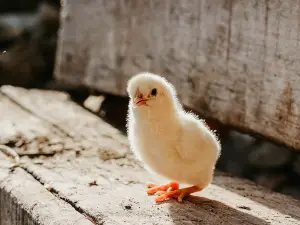
Birds are beautiful, majestic, and awe-inspiring creatures. These flying animals have beautiful feathers, can have huge wingspans, and are streamlined for flight. That being said, birds are not perfect, and just like any other animal, they can get sick.
These animals can spread a variety of diseases to other animals too. If you own a baby bird you may be concerned about it carrying a disease. So, do baby birds carry diseases? This article looks into it.
Baby birds can and do carry diseases. More common diseases that baby birds can carry include salmonella and psittacosis. These illnesses can be passed on to humans if a person touches a baby bird or comes into contact with a baby bird’s droppings or respiratory secretions.
Table of Contents
Do baby birds carry diseases?
Baby birds can and do carry diseases.
When it comes to birds, there are more diseases than avian flu to be worried about, it is said that there are over 60 known diseases that birds can carry. Illness-causing bacteria can be found in nests, fecal matter, and feathers.
Salmonella
One of the more well-known, and serious, diseases that baby birds are known to carry is salmonella.
Salmonella can be carried by all types of birds including baby turkeys, baby geese, chicks, and ducklings to name a few. Humans can catch this illness by touching the droppings of baby birds who carry this disease.
Psittacosis
Psittacosis is a common bird disease caused by bacteria, this illness can affect baby birds as well. The bacteria live in the droppings and respiratory secretions of infected adult and baby birds.
Touching these droppings or respiratory secretions with your bare hands puts you at a very high risk of catching the illness. Older people generally have more severe symptoms of this illness
Coming into contact with dead baby birds increases your risk of catching these illnesses as well. Touching a bird carcass, without wearing sterile protective gloves, will put you at risk of catching an illness from the animal’s body.
Dead animals can become a bacteria breeding ground
Tip: If you have a weakened immune system, or are an older person, avoid coming into contact with birds. In addition, do not let any children younger than 5 years old come into contact with birds either.
Can a baby bird make you sick?
As much as we love cute baby birds, yes, these tiny feathered animals can make you sick. Doing something as simple as touching a baby bird, or being in contact with the area that they roam and live in, can cause you to catch an illness.
To avoid getting sick, it is important to protect yourself by thoroughly washing your hands with soap and water after touching a baby bird or where they live. If you don’t have access to soap and water you can use hand sanitizer.
It is also important to clean any materials or equipment used to care for your birds after use. Materials and equipment that come into contact with the bird can also carry bacteria that cause diseases.
Can I touch a baby bird?
Yes, you can touch a baby bird but it is always important to take precautions before and after you do so. This includes:
- Covering any exposed skin on your body before getting near the bird
- Thoroughly washing your hands after touching the bird and before eating or drinking anything
Is bird poop toxic to humans?
Bird poop can be toxic to humans as it is a breeding ground for a variety of bacteria, parasites, and viruses. If these bacteria, parasites, and viruses come into contact with you they can cause you to develop a variety of diseases and illnesses.
In addition, cleaning bird poop or inhaling the dust created by dried bird poop can also make you sick.
Anyone can become sick because of bird poop but people with a weakened immune system can suffer more severe symptoms should they get sick from bird poop. This includes people who are older, under the age of 5, have HIV/AIDS or cancer
Conclusion
In conclusion, baby birds do carry diseases. The more common diseases carried by baby birds are salmonella and psittacosis. Illness-causing bacteria can be found in bird nests, fecal matter, and feathers.
Handling baby birds without wearing protective gloves, and not washing your hands after handling, can put you at risk of catching these illnesses. People with weakened immune systems will suffer more severe symptoms if infected with these illnesses.
If you enjoyed this article then you may also be interested in other pigeon related articles. Here are some articles that you may be interested in: Do baby birds eat as soon as they hatch?, Can baby birds eat rice?, Why do baby birds open their mouths?, Why do baby birds chirp?,

